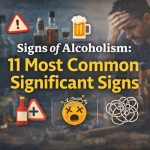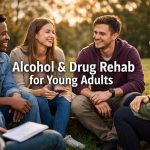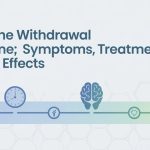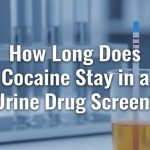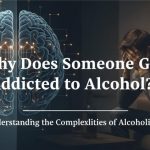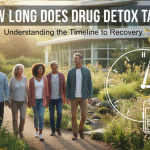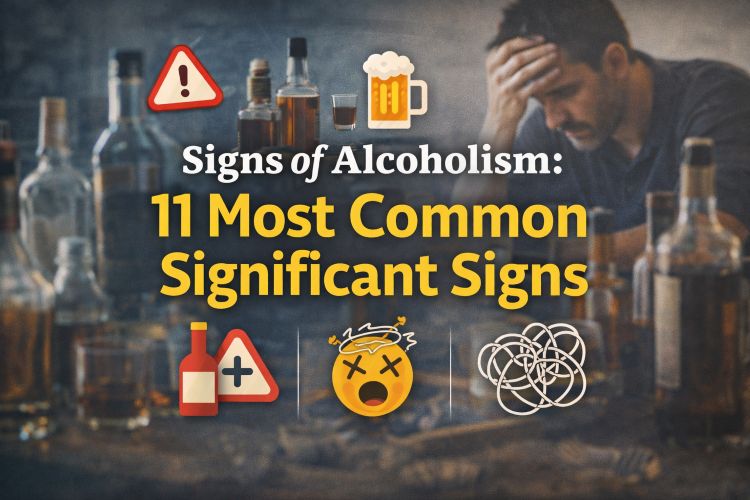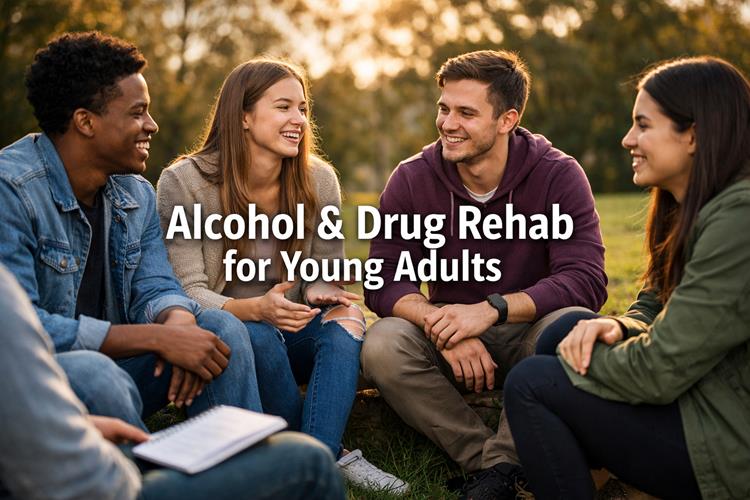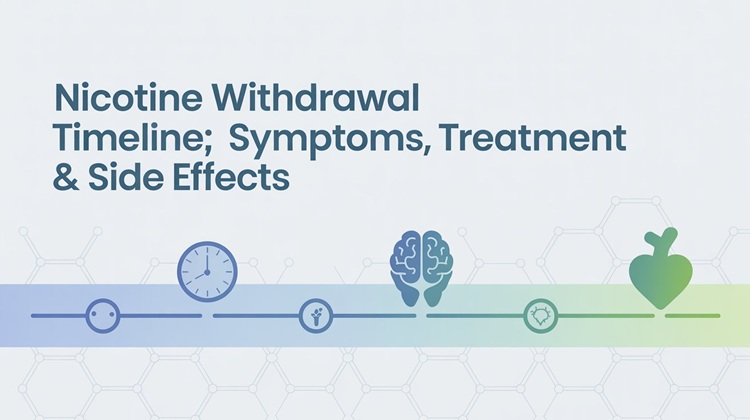Many people begin experimenting with drugs or alcohol at an early age, often as a temporary phase. Unfortunately, some individuals develop addictions that persist over time. The most concerning part is that substance abuse can have increasingly severe effects on a person’s health, deeply impacting both their well-being and the loved ones who care about them.
Addiction Among Seniors: A Hidden Problem
While addiction is often perceived as a problem primarily affecting adults, it’s crucial to recognize the growing impact of substance misuse on our loved ones in their later years. In reality, addiction rates are alarmingly increasing among loved ones. The aging population presents unique challenges for families and caregivers. This may be a particularly severe issue since the seniors are more vulnerable to the harmful effects of drugs and alcohol.
Here’s a closer look at addiction among the seniors.
Why it’s a concern: Families should be aware that, as their loved ones age, they can experience a diminished ability to metabolize medicines and alcohol, making them more susceptible to harmful side effects, even at lower dosages. Furthermore, certain drugs may interact with addictive substances, raising health hazards.
Types of Addiction: While alcohol misuse is an issue, seniors are also vulnerable to prescription medication addiction, particularly opioids and benzodiazepines, which are frequently prescribed for pain and anxiety.
Causes of Addiction: There are several reasons why an aged person may succumb to addiction. These include chronic pain, loneliness, despair, and dealing with the death of a spouse or loved one.
Learn about the causes and risk factors of drug abuse in your family member, as well as what you can do to help someone you care about. Substance misuse in people might appear differently and have more serious consequences for your loved one. At Palm Coast Treatment Solutions, we understand the value of a tailored addiction treatment approach.
Our evidence-based treatment programs take into account all of the aspects that will influence your recovery. Call (386) 284-4151 to learn more about how we tailor our therapy to aged people with alcohol and drug use problems.
The Prevalence of Addiction in the Loved One
Contrary to common belief, addiction is not confined to the young. The senior population is equally susceptible, with the Substance Abuse and Mental Health Services Administration predicting a twofold increase in the number of seniors needing treatment for substance abuse by 2020.
100% Confidential Support is Available 24/7
No matter what you’re going through, you’re not alone. Our dedicated team is here to provide a safe, judgment-free space where you can talk openly and honestly. Whether you need emotional support, resources, or just someone to listen.
We’re here for you—completely confidential and always respectful of your privacy. Call us today!
The Most Common Addiction in a Loved One: Prescription Drugs
Prescription medicines are the most frequent kind of addiction among seniors, rather than illegal drugs or alcohol. According to the National Institute on Drug Abuse, people over 65 account for around 30% of all drugs administered in the United States.
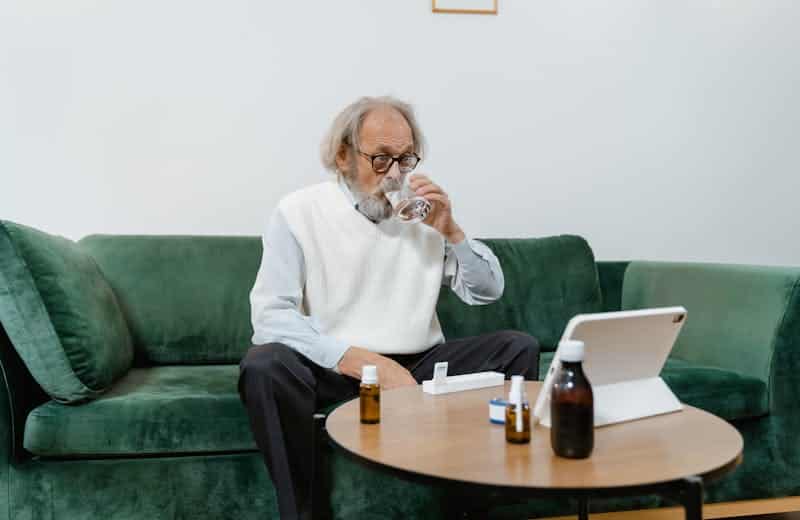
Contact Palm Coast Treatment Solutions
Battling with Drug and Alcohol Addition? Remember, you are not alone and we are here to help you!
Why Prescription Drug Addiction?
There are several reasons why prescription drug addiction is prevalent among seniors. Firstly, senior people are more likely to have chronic illnesses or multiple health issues, leading to multiple prescriptions. Secondly, the physiological changes that come with aging can affect how drugs are metabolized, leading to increased sensitivity or, in some cases, addiction.
Overcome Addiction with Palm Coast Treatment Solutions.
Book an appointment.
The Impact of Prescription Drug Addiction
Prescription drug addiction can have severe consequences for senior individuals. It can lead to a decline in overall health, the worsening of existing health conditions, and a decreased ability to function independently. Furthermore, it can lead to harmful drug interactions, especially when multiple medications are involved.
Addressing the Issue
Addressing prescription drug addiction in the senior requires a multi-faceted approach. This includes regular monitoring of prescription drug use, educating patients and caregivers about the risks of misuse, and providing access to support and treatment services.
Understanding and addressing the most common addiction among senior people is crucial for their well-being. By shedding light on the prevalence of prescription drug addiction, we can pave the way for better prevention, intervention, and treatment strategies, ultimately improving the quality of life for our senior population.
While prescription drug addiction is the most common, it’s important to note that senior individuals can also struggle with other forms of addiction, such as alcohol, gambling, or even internet addiction. Each of these addictions presents its unique challenges and requires a tailored approach to prevention and treatment.
Furthermore, the stigma associated with addiction sometimes discourages loved ones from getting treatment. As a result, raising awareness of addiction among seniors and encouraging open, nonjudgmental discussions about it is critical.
Causes of Addiction in the Loved One
Various factors may lead to someone developing substance misuse later in life. These might be physical difficulties or life-altering experiences that have an emotional impact. These situations may trigger substance-abusing behavior, which can lead to a full-blown addiction.
The following are potential triggers or causes of drug or alcohol addiction in the senior.
- Memory problems.
- Sleeping habits
- Unexplained bruises.
- irritability, sadness, and depression.
- unexplained chronic discomfort
- Changes in dietary habits
- Failing to bathe or maintain a clean
- Losing contact with loved ones.
- Lack of interest in regular activities
Overcome Addiction with Palm Coast Treatment Solutions.
Book an appointment.
Symptoms of Addiction in the Loved One
Addiction may be a significant problem for people of all ages, but it is especially difficult to identify in seniors. Here are some signs of addiction in seniors to look out for:
Changes in behavior: Examples include falling more frequently, ignoring personal cleanliness, and retreating from social activities.
Changes in mental abilities: Changes in mental capacities may include memory issues, disorientation, trouble concentrating, or mood swings.
Changes in sleep patterns: This might involve sleeping more or less than normal or having difficulty sleeping all night.
Unexplained physical symptoms: These might include headaches, dizziness, or persistent discomfort.
Financial problems: This might indicate that the individual is wasting money on drugs or alcohol.
Legal problems: This might indicate that the individual’s addiction is causing them to take risks.
If you are concerned that a loved one is battling with addiction, you should talk to them about it. You can also speak with their doctor or therapist. They can recover with therapy.
Benefits of Addiction Treatment
Here are some of the benefits of addiction treatment:
Improved Physical Health: Addiction harms the body. Treatment can help people improve their overall health by promoting better sleep, diet, and medical treatment. This can result in more energy, a better immune system, and a healthy weight.
Enhanced Mental Well-being: Addiction often occurs with mental health disorders such as anxiety or depression. Treatment can address the underlying causes, resulting in better mood, self-esteem, and clearer thinking.
Develop Healthy Habits: Addiction therapy provides individuals with techniques to handle triggers and cravings. They learn new coping techniques and how to live a healthy lifestyle.
Supportive Environment: Treatment programs offer a safe and supportive environment for healing. This might include therapy, group counseling, and connecting with people who are going through similar experiences.
Stronger Relationships: Addiction may cause strain in relationships with family and friends. Treatment can help repair trust and communication, resulting in stronger and better relationships.
Reduced Risk of Relapse: The goal of addiction treatment programs is to avoid relapse. To improve the odds of long-term recovery, identify triggers, develop coping skills, and establish a strong support system.
Overcome Addiction with Palm Coast Treatment Solutions.
Book an appointment.
Palm Coast Treatment Solutions: Addressing Substance Abuse in the Loved One
Changes in mood, memory, and energy can occur in senior persons, making it more difficult to identify substance usage.
Once an addiction has been identified, it is vital to seek out a treatment facility that specializes in working with seniors who are addicted.
You should seek programs that specialize in this form of addiction and also provide case management services, as people over the age of 65 sometimes lack the social support they need throughout recovery. These case management services will give the senior access to medical, psychological, and social resources, allowing them to maintain a healthy lifestyle even after treatment.
According to the American Society of Addiction Medicine (ASAM) consensus panel, the following are suggested as appropriate treatment techniques for senior persons seeking drug misuse therapy:
- Cognitive Behavioral Approaches
- Group-based therapy.
- Individual therapy.
- Medical/psychiatric approaches.
- Family and marital therapy
- Case management/community-based services and outreach
If you see changes in a senior you care about, call Palm Coast Treatment Solutions at (386) 284-4151 for help detecting and treating substance misuse in the loved one.






